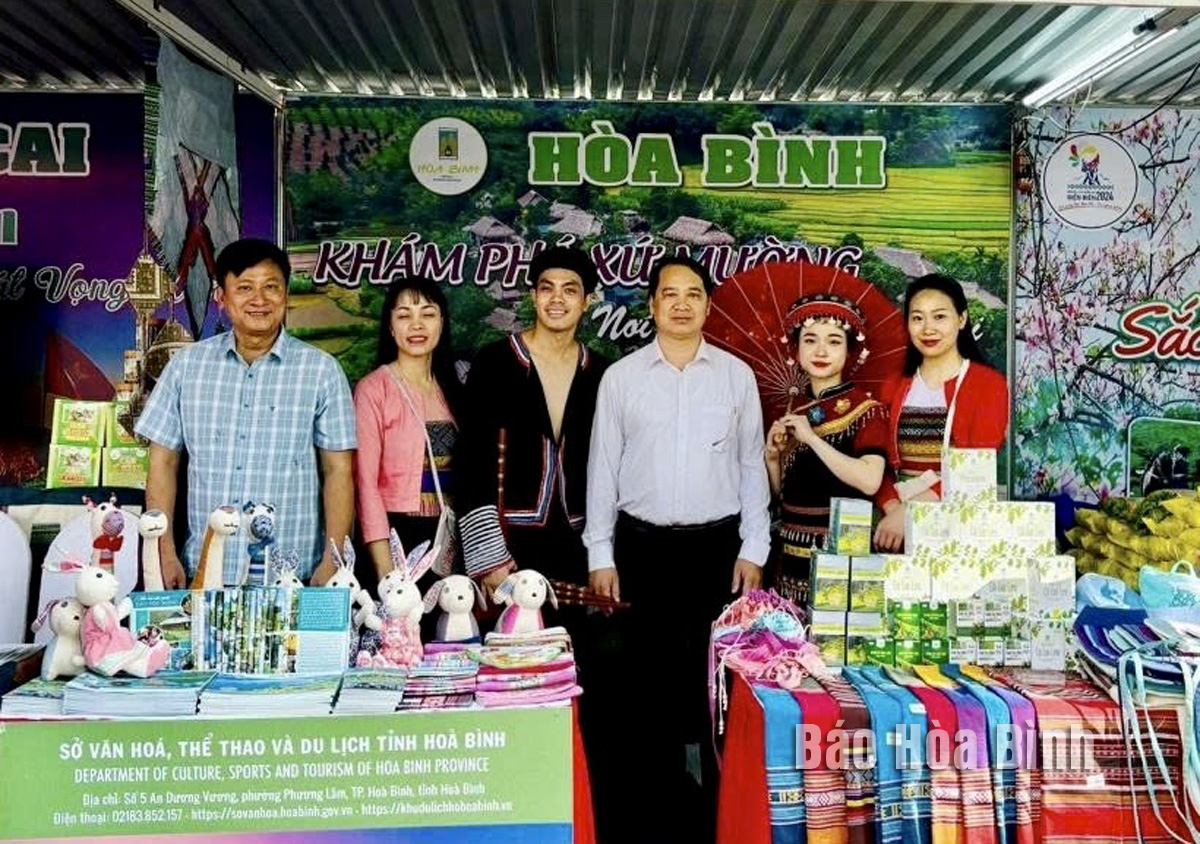
Hoa Binh province joined Vietnam’s national "One Commune, One Product” (OCOP) programme in 2019, not simply as a mountainous region following central policy, but with a clear vision to revive the cultural and agricultural values in its villages and crops.
Five years on, OCOP in Hoa Binh has gone beyond product counts and star ratings. It has transformed local production mindsets, revitalised cooperatives and household businesses, and strengthened collaboration between authorities and farmers, while preserving cultural identity amid development.
At the 2025 Ho Chi Minh City Tourism Festival, Hoa Binh’s Department of Culture, Sports and Tourism put on display a range of local OCOP products tied to tourism.
The province’s OCOP journey began with a product evaluation of local products like ripe oranges and honey in Cao Phong district in late 2019. These items then were soon be judged on packaging, QR codes, and production standards.
From national policies
Launched nationally in 2018, the OCOP programme aims to restructure rural economies and elevate traditional products for modern markets. In April 2019, Hoa Binh province approved its OCOP implementation plan through 2020, with a vision to 2030, and established a strong multi-level governance structure to guide local adaptation. Districts such as Cao Phong, Luong Son, Tan Lac, and Mai Chau quickly joined the programme.
Officials held training sessions and visited remote communities to encourage the revival of traditional crafts such as brocade weaving, duck farming, and herbal cultivation. OCOP was also integrated into the province’s new rural development strategy, with strong support from local unions and Party organisations.
From 2018 to 2020, over 47.5 billion VND was invested in OCOP activities, including training, product standardisation, and trade promotion, according to Nguyen Huy Nhuan, Director of the provincial Department of Agriculture and Environment.
To new procedures for traditional products
In Mai Chau district, women once weaving by firelight now learn to photograph their products and meet hygiene standards. In Luong Son district, pomelo growers were introduced to QR codes and anti-counterfeit labelling, early steps in transforming local goods into competitive market products.
Hoa Binh strictly follows national OCOP criteria. After commune-level screenings, districts support documentation for provincial evaluation. Products are assessed across six categories, including quality, packaging, traceability, and cultural storytelling.
To assist producers, the province provided intensive training, both in-person and online during the COVID-19 pandemic, on business planning, branding, and certification processes such as VietGAP and HACCP.
By 2020, Hoa Binh had 70 certified OCOP products, 18 with four stars and 52 with three stars, produced by 59 cooperatives, businesses, and households.
Beyond certifications, OCOP in Hoa Binh has professionalised rural production, helping farmers not only cultivate but also market and brand their goods. For a province rich in cultural identity but economically challenged, the programme offers a sustainable path for preserving tradition while reaching wider markets.
The province has also laid a solid policy foundation to support OCOP’s long-term growth.
In Lac Thuy district, communes have been succeeded in promoting their One Commune-One Product (OCOP) products while others are still struggling to position their typical farming products in market. Some communes in the district still fail to have their products met OCOP programme’s requirements, while others have seen their certifications expired.
The inspectorate agency of Hoa Binh province has issued Official Dispatch No. 1090/TTr-PCTN to provincial departments, agencies, localities, business associations, enterprises, and investors regarding measures to improve informal component indexes of the Provincial Competitiveness Index (PCI).
Hoa Binh is taking concrete steps to improve its investment environment, with a strong focus on supporting businesses, settling obstacles for strategic investors, and creating opportunities for robust development in the coming years.
Under the blazing early summer sun, the construction site of Nhuan Trach Industrial Park (IP) in Luong Son district is abuzz with activities from dawn to dusk, a testament to the determination of the investor to meet their construction targets on schedule.



